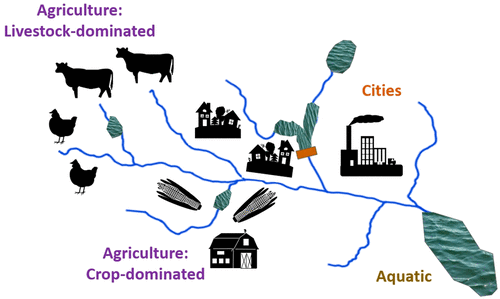Does better sanitation mean healthier children? A first-of-its-kind test case in Mozambique will tel
Does providing some sort of improved latrine for children in developing countries actually improve their health?
That means something other than a public or shared latrine, a bucket, or simply an open pit, the kind of facilities millions of people around the globe use each day.
The obvious answer would seem to be “yes.” But the truth is, we don’t have the hard science to prove it.

That’s why School of Civil and Environmental Engineering Ph.D. student Jackie Knee and assistant professor Joe Brown are working in Maputo, Mozambique: they’re hoping to provide a clear answer for the first time to what amounts to a million-dollar question. Their trial, in an urban area and testing sanitation systems that are decentralized, is the first of its kind.
“One of the primary goals is to provide data to the government that [evaluates whether] this intervention – building these improved shared latrines in urban areas – has a positive impact on child health, meaning that as a result of this intervention, children are less sick,” said Knee, who is heading to Mozambique this week for a two-month research trip.
The other goal is to share the study results with the broader water, sanitation and hygiene sector (often known simply as WASH).
“This study could help drive the future direction of sanitation research,” she said.
And it could change lives. The decentralized sanitation that is the study’s focus is the most common form of human waste disposal in the world, even in cities.
The research, funded in part by the U.S. Agency for International Development, also has the potential to make a significant impact thanks to a near-perfect set of circumstances, Knee said.
The scientists have been able to assess the children’s health before any latrines were built. So, now, they’ll be able to directly compare the health of the same children 12 months after the new latrines are available. Knee and the group also will compare those results to children who live in compounds without improved latrines. Knee said few studies of sanitation interventions have such direct before/after comparisons in addition to a control group.
“If we can provide data that says yes, this works, or no, this doesn’t work, then governments can make more informed decisions about whether this is a worthwhile place to spend money,” Knee said. “It’s not just the government of Mozambique; we’re hoping that this might be generalizable to many different major cities [in the developing world].”

Ph.D. student Jackie Knee, right, works in a Ministry of Health Lab in Mozambique. Later this week, Knee returns to the capital of Mozambique for a two-month research trip as part of a project assessing the impact of improved latrines on children's health.
Knee has spent about four weeks in Maputo over the last year getting the study up and running. This summer, she’ll be overseeing all of the study activities, making sure the projects are on track – and troubleshooting when they’re not. Because, sometimes, there’s no substitute for being on the ground in person.
“There are small things that you don’t realize, like maybe one of your sample collection procedures that you so carefully wrote out while sitting at your desk in Atlanta is not going to work when you translate it into actual practice in the field,” Knee said.
On her last trip to Maputo in March, she and the sampling team were collecting flies and trying different types of bait. Knee had planned to use rotten bananas and fish guts.
“As soon as we put the dish of fish guts under the baited trap, all of the stray cats in the area smelled it. Within five minutes, they had knocked over the trap and stolen the bait,” Knee said with a laugh. “So you very quickly learn that sometimes your carefully laid plans will just be nixed as soon as you try to implement them.”
The unpredictability of fieldwork is familiar to Knee, who has spent years researching overseas. She studied the quality of stored rainwater in rural Thailand as a Fulbright fellow, and she worked in Kenya on a water quality and water storage project for the U.S. Centers for Disease Control and Prevention.
Knee’s interest in global public health was born from passions for international development and science.
“[It’s] pairing something that I’m good at — science — with something that I’m passionate about — international development — and seeing changes in the lives of people whose lives need change the most,” Knee said. “I saw public health as the marriage of those two things.”
On her way to Maputo, she’ll swing through Namibia for a State Department-sponsored conference of women studying water issues in Africa where she’ll do a brief presentation on the Mozambique trial. She’s the only junior scientist from the United States attending.
Read more and see more photos on the CEEatGT website.

















